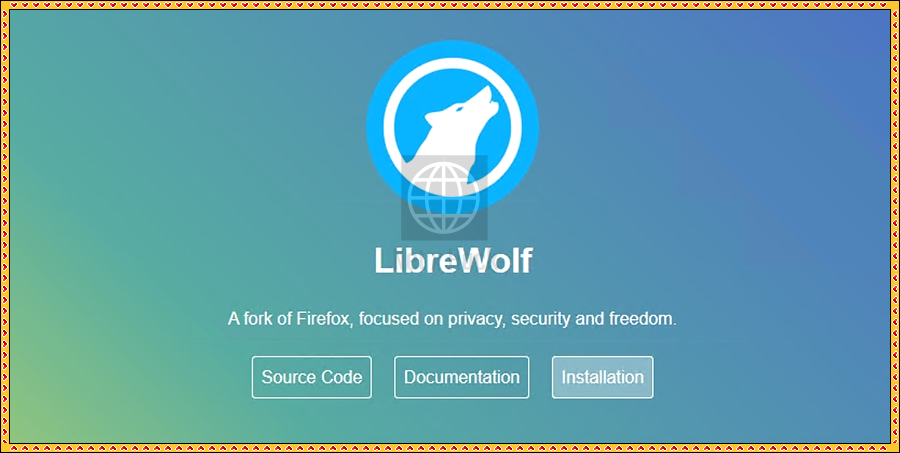

- #Librewolf alternative install
- #Librewolf alternative update
- #Librewolf alternative for android
- #Librewolf alternative pro
The tab search menu (top-right near the close button) is a fairly recent and novel innovation as well, and I hope to see it in other browsers in the future.Ī gripe I have about Ungoogled Chromium is that it’s not immediately possible to install Chrome Extensions. Chrome browsers dominate the market today and that’s almost certainly due to the pixel precision web developers can get developing in Chrome-based browsers. What I really like about Ungoogled Chromium is the rendering engine. And you’ll have to install uBlock Origin extension on your own, which is fine considering Ungoogled Chromium seems to be more focused on just getting rid of Google browser malware than addressing privacy. Here’s what it looks using DarkDuckGo with a dark theme:Īs you can see it’s not quite as clean-looking as LibreWolf. I touched on this browser back in 2019 and it’s still going strong. My second favorite alternative to Firefox on Linux none other than Ungoogled Chromium. In my opinion, anything that goes out of its way to try and hide you on the clearnet is likely to single you out and make you look more suspicious. Note: I do not recommend Tor nor Tor Browser. But I know that’s because opening full-screen helps prevent fingerprinting the browser based on window size – something I saw Tor Browser doing last I checked. One gripe I have about LibreWolf is that it always opens full-screen. And they added uBlock Origin, probably the most popular privacy extension in the world right now. What I like about LibreWolf is that they ditched that Pocket extension you can’t seem to get rid of in Firefox. Here’s what it looks using DarkDuckGo with a dark theme: I like to think of it as the spiritual successor to GNU IceCat, a browser I was excited about in 2019 but not so much anymore. Librewolf is a fork of Firefox focused on privacy, security and freedom. My favorite alternative to Firefox on Linux is LibreWolf. My two favorite alternatives to Firefox for Linux. If you’re not familiar with Flatpack I encourage you to visit their website and read up as it can save you a lot of time no matter what distro you’re running. Rather than getting my browsers from the AUR these days I’m now installing withįlatpack for speed and simplicity.
#Librewolf alternative pro
Today I want to share my two favorite browsers for Linux, which I recently installed on my 2019 MacBook Pro running Arch Linux. And at the time I was running an Arch derivative called Manjaro Linux on my 2015 MacBook Pro. The original post was written when it was disclosed Firefox had suffered multiple zero-day vulnerabilities. What will it be for you? Let me know your thoughts in the comments below.This is a quick reboot of a post I wrote two years ago called Alternatives to Firefox on Manjaro Linux.

However, LibreWolf is a solid alternative for those who want to switch away from Firefox or just want to try something that’s laser-focused on user freedom and privacy. I prefer using Firefox because I need the convenience of account-based sync without aggressive blocking capability. The benchmarks test (Basemark 3.0, Speedometer 2.0) didn’t work with LibreWolf for some reason, so I did not include any performance comparison chart. Performance-wise, both should offer similar experiences. In case you do not want cloud-sync features, extras, and hardcore privacy-focused settings out of the box, LibreWolf will be the perfect solution.

If convenience is your thing where you require sync/sign-in account features, Mozilla-specific offerings, and essential privacy protections, Mozilla Firefox should suit you better. There are no critical downsides of Firefox being a part of something bigger, but there may be some future decisions (or changes) that you may not like, put forward by Mozilla for its users.īut, LibreWolf as a community project will keep user preferences as its priority. You will be receiving updates faster than LibreWolf, which is an important aspect if you are worried about your browser’s security. In contrast, the Mozilla Foundation is a much bigger organization and has been setting extraordinary examples to promote customizability, privacy, and security.
#Librewolf alternative update
Even with a small team, they follow the latest Firefox releases and push an update as soon as possible.

If you prefer what LibreWolf has to offer, it should not be a problem to go with it. LibreWolf is a community-powered project maintained by a few passionate contributors to promote privacy, security, and user freedom. Community-Based vs Backed by Organization Unfortunately, LibreWolf is limited to the desktop platforms like macOS, Windows, OpenBSD, and Linux.
#Librewolf alternative for android
Cross-Platform Supportįirefox is available for Android and iOS, and works well with a wide range of screen sizes and devices. However, if you do not trust any of the Mozilla services and prefer to sever any connections to them on your browser, LibreWolf is your friend.


 0 kommentar(er)
0 kommentar(er)
